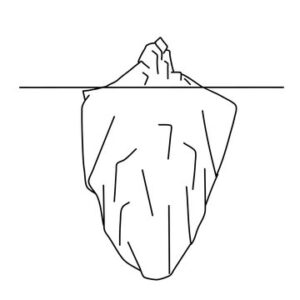Covid’s Delta
The New Yorker
The Delta Variant Is a Grave Danger to the Unvaccinated
One half of America is protected. The other is approaching a perilous moment in the pandemic.
by Dhruv Khullar, a contributing writer at The New Yorker, is a practicing physician and an assistant professor at Weill Cornell Medical College.
Experts believe that the Delta variant is 60% more transmissible than Alpha, or the UK variant.
The variant now represents more than 20% of coronavirus infections in the U.S. in the last two weeks, or double what it was when the CDC last reported on the variant’s prevalence. [USA Today]
“The good news is that we have vaccines that can squash the Delta variant,” Eric Topol, the director of the Scripps Research Translational Institute, told me. “The bad news is that not nearly enough people have been vaccinated. A substantial share of Americans are sitting ducks.” He went on, “We haven’t built a strong enough vaccination wall yet. We need a Delta wall”—a level of vaccination that will prevent the new variant from spreading. “There are still large unvaccinated pockets in the country where this could get ugly,” Topol added. Because about half of Americans are vaccinated, and millions more have some immunity from prior infection, the Delta variant “won’t cause monster spikes that overwhelm the health system,” Topol said. But Delta spreads so easily among the unvaccinated that some communities could experience meaningful increases in death and disease this summer and fall.
In a recent piece, I likened a society that’s reopening while partially vaccinated to a ship approaching an iceberg. The ship is the return to normal life and the viral exposure that it brings; the iceberg is the population of unvaccinated people. Precautions such as social distancing can slow the speed of the ship, and vaccination can shrink the size of the iceberg. But, in any reopening society that’s failed to vaccinate everyone, a collision between the virus and the vulnerable is inevitable.
Because of its exceptional transmissibility, the Delta variant is almost certain to intensify the force of the collision. The U.K., by postponing a full reopening, is trying to soften the blow. But the U.S. is pressing ahead—perhaps out of hubris, or because officials hope that our vaccination campaign can outrun the spread of Delta. Last week, New York and California, among the pandemic’s hardest-hit states, did away with virtually all restrictions. Meanwhile, states with half the vaccination rates of New York or California have been open for weeks. A lot depends on where, and how fast, Delta is spreading.
AXIOS:
The rapid spread of the B.1.617 (Delta) variant first discovered in India is making the second dose “more important now than ever before,” state epidemiologist Rachel Herlihy said Monday.
- Colorado has the second-highest proportion of the variant in the nation and the fifth-highest overall positivity rate.
The Guardian:
‘Two Americas’ may emerge as Delta variant spreads and vaccination rates drop
Biden’s 70% vaccination target by Fourth of July likely to fall short as efforts to entice people to get shots have lost their initial impact
“I certainly don’t see things getting any better if we don’t increase our vaccination rate,” Scott Allen of the county health unit in Webster, Missouri, told Politico. The state has seen daily infections and hospitalizations to nearly double over the last two weeks.
Only 52% of Republicans said they were partially or fully vaccinated, and 29% said they have no intention of getting a vaccine, according to a CBS News/YouGov poll. 77% of Democrats said they were already vaccinated, with just 5% responding that were resisting the vaccine.
“I call it two Covid nations,” Peter Hotez, a vaccine researcher at Baylor College of Medicine in Houston, told BuzzFeed News.
Bette Korber, a computational biologist at the Los Alamos National Laboratory in New Mexico, said she expected variant Delta to become the most common variant in the US within weeks. “It’s really moving quickly,” Korber told Buzzfeed.


Leave a Reply